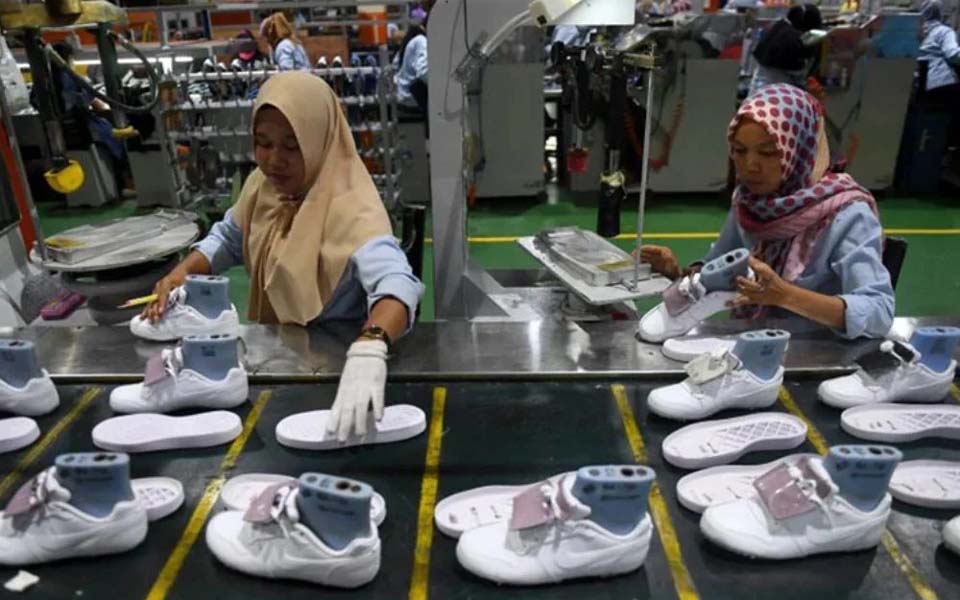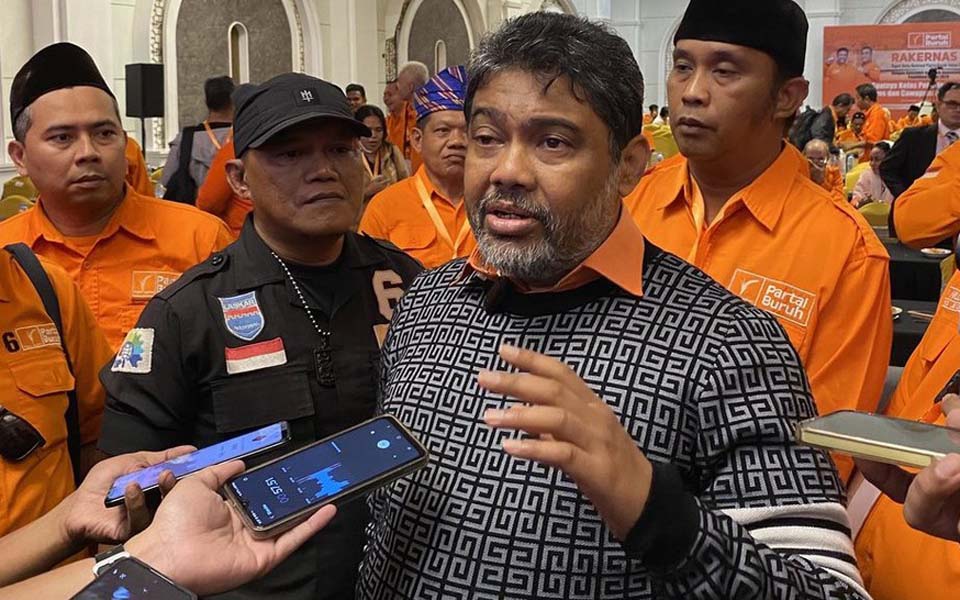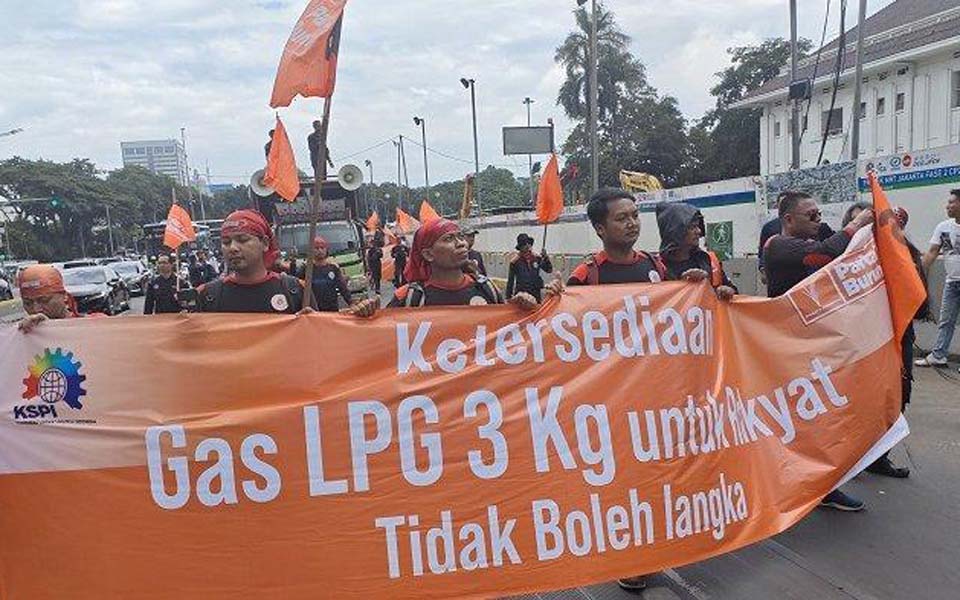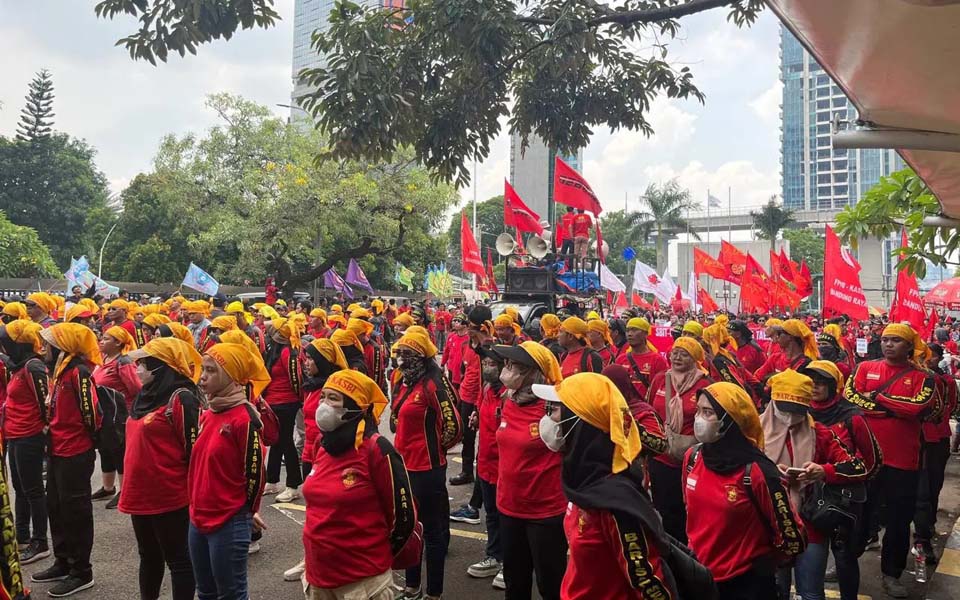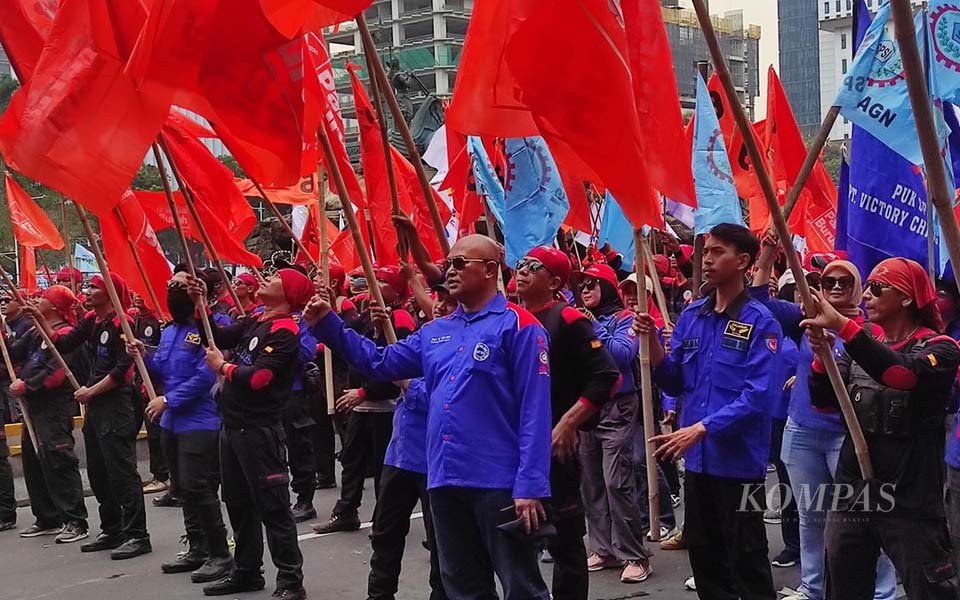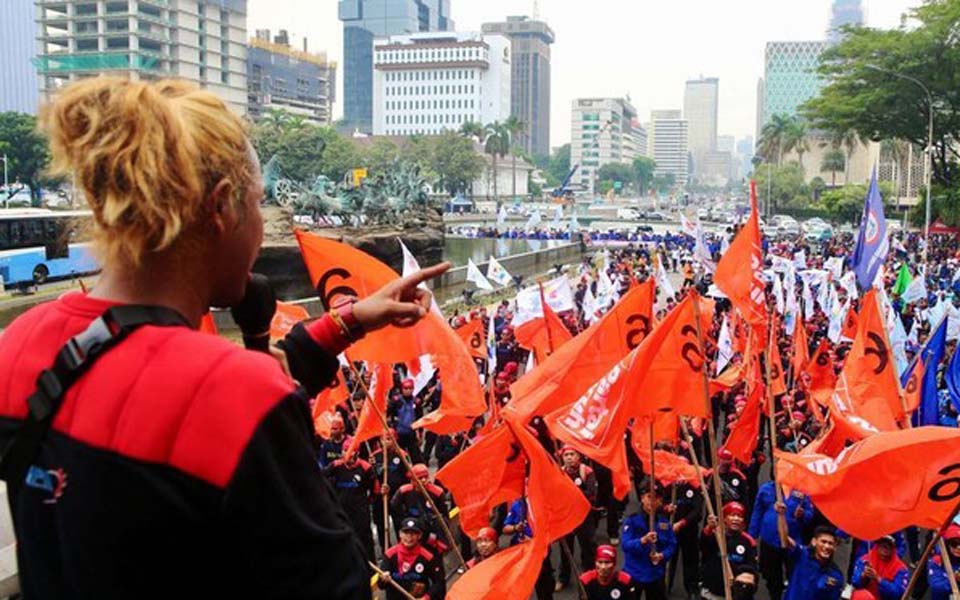Iwan Setiyawan, Jakarta – Workers and employees in Indonesia are still not free to associate. This can be seen from the small number of trade unions in the workplace, that is around 5.8 percent out of a total of 189,000 companies in Indonesia.
This was one of the results of a study by the Indonesian Labour Education and Research Institute (LPPKI) and the Actrav Norwegia International Labor Organization (ILO) on the freedom of association, outsourcing and youth labour that was released in Jakarta on Tuesday April 15.
Based on data from LPPKI, only around 11,000 out of 189,000 companies have a trade union or employees association. The number of trade unions or employees associations meanwhile currently stands at 87 at the national level and hundreds at the regional level.
LPPKI is an alliance of three confederations, the Confederation of the All-Indonesian Workers Union (KSPSI), the Confederation of Indonesian Trade Unions (KSPI) and the Confederation of Prosperity Labour Unions (KSBSI).
KSBSI campaign coordinator Andy Sinaga revealed that the results of the survey showed that out of 144 employees from 110 companies in industrial zones in Banten province, Jakarta special province and the provinces of West and East Java in June 2007 indicated that a number of companies are still opposed to the presence of trade unions and carry out intimidation or establish rival trade unions.
Whereas Law Number 21/2000 on Trade Unions stipulates that employees and workers have the right to form trade unions along with the criminal penalties for those who violate this. “Freedom of association is still minimal. Ironically, [we] have yet to see criminal penalties [applied] against violations of the freedom of association”, said Andy.
Six cases
As of 2007, six cases of violations against freedom of association in Indonesia have been reported to the ILO Geneva Committee for Freedom of Association.
According to Sinaga, trade unions are absolutely necessary to act as a bridge in the resolution of industrial conflicts. Some companies however still have concerns about the formation of trade unions or employee associations because they believe it will damage the company financially.
This problem is worsened by the low level of labour supervision, particularly in the regions. Out of the 700 supervisors across 33 provinces, more than 50 percent are not trained supervisors.
The head of the Worker Organisation Section of the Department of Labour, Agus Salim related how the placement of untrained supervisors results in many labour problems being ignored. Nevertheless, this year there have been efforts to obtain a commitment from governors, regents and mayors throughout Indonesia to undertake a revitalisation of labour supervision.
The other problem that hinders labour is contract labour systems (outsourcing) that ignores the length of time a worker has been employed and negates workers’ rights.
Minimal awareness
The head of the Indonesian Employers Association (Apindo) board of directors, Hasanuddin Rachman revealed that the small number of trade unions formed is because workers and employees still have a low level of awareness.
Labourers, continued Rachman, have the right to form or not form trade unions. Meanwhile it is difficult for the business world to motivate workers or employees to form trade unions.
Because of this therefore, tripartite efforts (government, employers and trade union confederations) are needed to socialise the formation of trade unions in the workplace.
In relation to contract labour, Rachman said that the system is in accordance with Law Number 13/2003 on Labour, that is a maximum labour contract of two years and maximum extensions of one year. (lkt)
[Translated by James Balowski.]







